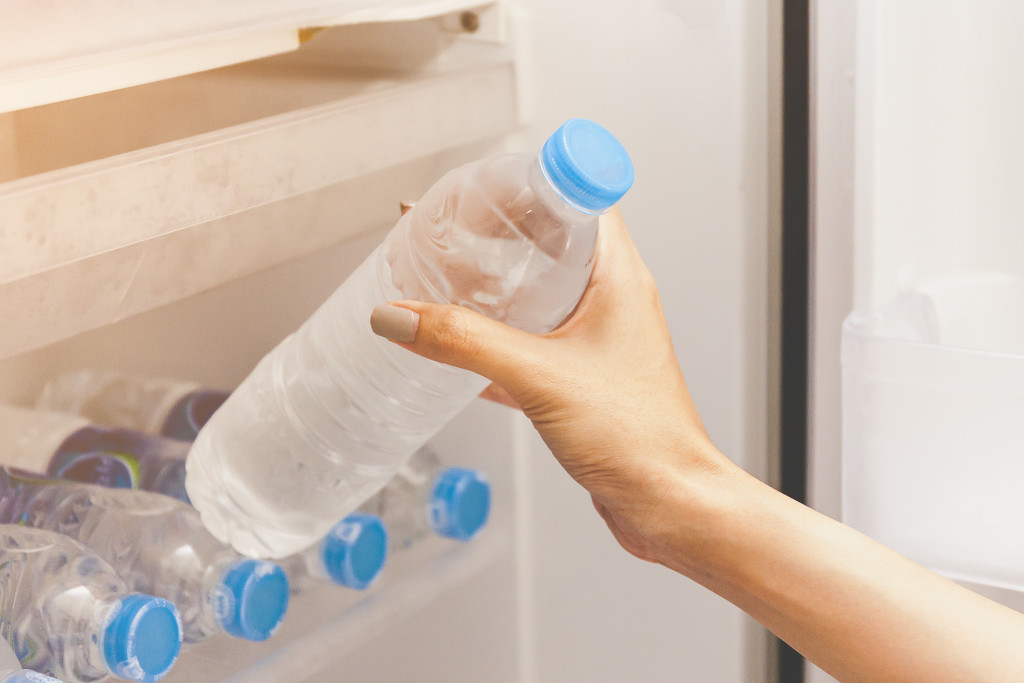- Water filtration systems are essential for removing impurities from the water and making it safe for consumption.
- Bottle washers are necessary for cleaning bottles and providing a hygienic environment for bottling fluids.
- Bottle fillers provide accuracy and repeatability in filling levels, aiding quality control and consistency when producing bottled water.
- Cappers and sealers ensure the bottles remain sealed until they reach their final destination.
Manufacturing bottled water requires essential equipment to ensure the process runs smoothly, efficiently, and safely. From water filtration systems to bottle-filling machines, these pieces of machinery are vital for producing high-quality finished products that meet industry standards. This article will discuss some essential equipment needed when manufacturing bottled water and how they contribute to producing quality products.
Production Equipment
Here are some of the equipment needed during the actual production of bottled water:
Water Filtration System
Water filtration systems are a critical component of the manufacturing process for bottled water. This system has various filtering processes that remove impurities from the water and make it safe for drinking. The filtration system contains multiple filters, each serving its purpose of effectively purifying the water. For example, the sediment filter helps to eliminate dirt, rust particles, and other large contaminants from the source water.
Activated carbon also works with these filters to capture microscopic elements like chlorine and organic substances that could harm the taste or smell of the water. Finally, reverse osmosis removes bacteria, viruses, and minerals that cannot be removed by typical filtrations systems. Without this essential equipment, consumers can develop health issues due to contamination if they drink contaminated bottled water.
Bottle Washers
Bottle washers are necessary pieces of equipment in bottled water manufacturing. By definition, it is a machine used to clean the inside and outside of containers by combining hot water pressure and detergent. This piece of machinery is essential in the manufacturing process as it ensures that any bacteria present on the interior walls of the bottles are eliminated, providing a safe and hygienic environment for bottling fluids at an industrial scale.
A bottle washer guarantees both safety and compliance with industry standards. Its ability to quickly stack bottles into rinsing positions makes it easy to use and reliable – reducing the costs of labor-intensive manual cleaning methods. In short, rather than risk contamination irregularities, businesses should heavily invest in top-grade bottle washers to safely guarantee their bottled water products are always safe for public consumption.
Bottle Fillers
Bottle fillers are an important piece of equipment for producing bottled water. In its simplest form, the bottle filler is a capping machine with conveyor frames used to add liquid into bottles for packaging. The bottom container is then filled with the desired product, then using mechanical and pressurized operations, the liquid flows from this basin into the prepared bottles at a steady rate.
Bottle fillers provide accuracy and repeatability in filling levels, allowing for better quality control over bottled water production. Additionally, they provide improved safety by being able to handle larger volumes of liquid without human intervention, which can lead to hazardous situations. Investing in good bottle fillers ensures that manufacturers achieve bottom-line results and satisfy customer requirements regarding product consistency and quality standards.
Cappers and Sealers
In the beverage industry, cappers and sealers are immensely important machinery. Cappers are used to securely fasten caps or closures onto bottles, while sealers ensure that the bottle is completely sealed after this process. These pieces of equipment increase efficiency in bottle production and protect product integrity by ensuring that the bottles remain sealed until they reach their desired location.
Bottling systems would be extremely inefficient without cappers and sealers and compromise product safety. Thus, efficient cappers and sealers are essential for manufacturing bottled water as they are integral in creating safe products while maintaining production speed.
Conveyors and Transport Systems

Conveyor and transport systems are essential when manufacturing bottled water, as they are designed to move, position, and change the direction of large objects efficiently. Motorized turntables play a major role in conveyor systems, allowing for smooth and consistent indexing to achieve desired levels of accuracy during the bottling process.
Ensuring high-quality accuracy is paramount for high-speed products such as bottled water. Turntables with powerful torque control capabilities can reach higher speeds with reduced noise and vibration.
Turntables also provide quick setup times allowing for the production of multiple products on one line with minimal effort required for changes. The motorized turntables used for conveying and transporting bottled water improve worker safety, productivity, and efficiency while reducing downtime, costs, scrap rates, and environmental impact.
Packaging Machinery

Packaging machinery is an important part of the production process when manufacturing bottled water. It can fill containers with liquid, tighten caps, and label and seal bottles. This type of equipment helps businesses to automate their filling and sealing needs, thus increasing efficiency and reducing costs associated with labor.
Furthermore, it is crucial to ensure product quality by providing a consistent level of tightness on bottle closures to minimize the potential for leakage or product contamination. By leveraging packaging machinery, manufacturers can quickly produce large quantities of bottled water with minimal manual labor. This allows for greater market accessibility at competitive prices, making packaged water affordable worldwide.
These are just some of the essential equipment needed when manufacturing bottled water. Each piece has its specific role in ensuring that the production process runs smoothly and safely while also helping businesses achieve maximum efficiency and maintain high-quality standards for their products.

